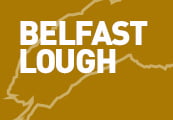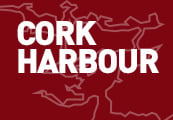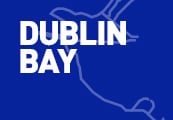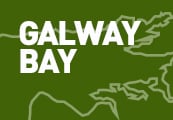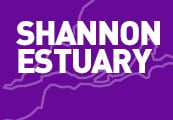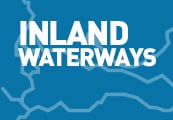Displaying items by tag: Offshore Wind
Concerns about whether Ireland has the port capacity to support the development of offshore renewable energy will be debated at an Oireachtas committee today (Tues, May 16).
The Joint Committee on Environment and Climate Action will hear from representatives of the Port of Cork, Shannon Foynes Port Company and Rosslare Europort.
Committee Cathaoirleach and Green Party TD Brian Leddin said that the Programme for Government commits Ireland to install five gigawatts of offshore wind power by 2030 to achieve 80 per cent of electricity generation from renewable energy.
“ However, to ensure this is effective and efficient, we require our ports to have the capacity to utilise this renewable power,” Leddin said.
“The committee looks forward to hearing from the operators of Cork, Shannon-Foynes and Rosslare ports about their plans for developing the capacity to exploit the energy that will be generated by windfarms proposed off Ireland’s south and west coasts,” he said.
A study published last September by Wind Energy Ireland said that Belfast was the only port on the island of Ireland with the necessary infrastructure to construct offshore wind farms.
The study by Gavin & Doherty Geosolutions examined 13 ports and harbours.
The joint committee has 14 members, nine TDs and five senators. It will meet in Committee Room 3 at 11 am today Tues, and can be viewed live on Oireachtas TV.
Committee proceedings can also be viewed on the Houses of the Oireachtas Smartphone App, available for Apple and Android devices.
Minister Coveney Talks Up Plans to Develop National Industrial Strategy for Offshore Wind
Minister for Enterprise, Trade and Employment, Simon Coveney has announced plans to develop a National Industrial Strategy for Offshore Wind which will set out how Ireland can maximise the economic opportunity arising from the production of offshore wind energy (OWE).
Ireland’s offshore energy programme includes a target to deliver 5GW of OWE by 2030 and a further 2GW of floating OWE to be in development by 2030. The total target for OWE rises to at least 37GW by 2050. This forms part of the Government’s target to provide 80% of our electricity from renewable sources by 2030.
In order to deliver the enterprise opportunities associated with these targets, the Government says a collaborative approach between State and industry is needed.
The National Industrial Strategy for Offshore Wind will be developed in consultation with the relevant Government departments, agencies and industry, with the objective of ensuring that Ireland fully captures the value of both the supply chain to deliver an OWE sector at scale and the routes to market for this renewable energy.
It is expected that the National Industrial Strategy for Offshore Wind will be published in the first quarter of 2024 and complement the suite of upcoming government policies led by the Department of Environment, Climate and Communications through the Offshore Wind Delivery Taskforce.
Announcing the plan, Minister Coveney said: “The impact of recent geopolitical events on the European energy market has accelerated our decarbonisation ambitions and added real urgency to transitioning to clean, renewable energy.
“Ireland has an internationally recognised significant offshore wind resource which we are now beginning to develop. It is essential to ensure that our enterprise sector is ready to contribute to the delivery of offshore wind, while also maximising the economic benefit which will arise from the availability of abundant clean, renewable energy.”
The minister said the announcement “is an important step towards developing new, regionally dispersed economic opportunities based on offshore wind, and I very much look forward to working with colleagues across Government and industry over the coming months as we develop an industrial strategy that will deliver real long-term benefits to both the economy and society”.
Welcoming the strategy, Environment Minister Eamon Ryan said: “Developing an offshore wind sector requires a whole-of-economy mobilisation, and an industrial strategy will provide a clear signal to international markets that across government, and indeed across Ireland; we are serious about this opportunity.”
Minister Coveney made the announcement on the eve of EirGrid’s auction for offshore wind project contracts this past week.
Codling Wind Park and three other projects were successful in this first auction of its kind in Ireland and all are expected to pursue their respective planning approvals.
ESB Says It ‘Remains Committed’ to Oriel Wind Farm After Missing Out in Offshore Energy Auction
The ESB says it “remains committed” to the Oriel Wind Farm project after it was unsuccessful in yesterday’s offshore wind energy auction, as RTÉ News reports.
The proposed wind power array in Dundalk Bay — a partnership between the ESB and Belgian green energy supplier Parkwind — missed out on one of the four contracts awarded to offshore wind projects around the country in the State’s first such auction.
In a statement on Friday (12 May), the ESB said that “while the Oriel project was not awarded a contract in this auction round, Parkwind and ESB believe that it is a well-positioned project and will ultimately play its part in generating the renewable electricity we need. We will continue to progress the project and are actively investigating alternative routes to market.”
Environment Minister Eamon Ryan confirmed on this morning’s edition of RTÉ Radio 1’s Today programme that there will be “a second auction later this year and we will go on the same next year”.
Meanwhile, environmentalists have urged that Ireland must be “wise”, despite the huge potential of green offshore energy, and maintain an “open transparency approach” when it comes to monitoring the status of marine wildlife around such sites.
RTÉ News has more on the story HERE.
Four offshore wind projects which were successful in the State’s auction results this week are expected to pursue their respective planning approvals.
The four projects – three on the east coast and one on the West – are predicted to generate 3GW if given final go-ahead.
The three farms in the Irish Sea are:
- Kish Bank, some 11km off the coast of Dublin (500MW);
- The Dublin Array, 10km from the coast between Dublin and Wicklow (824MW);
- Codling Banks, the largest of the three, which is 13km off the Co Wicklow coast.
The Sceirdre Rocks project in north Galway Bay has also been approved. It was the subject of a number of objections in its foreshore license application on grounds of visual impact and potential disturbance to marine life and impact on fishing communities.
The remaining 2GW required for the Government’s target will be the focus of a phase-two auction.
Minister for Environment Eamon Ryan has welcomed the auction results, and the price secured of €86.05 per MW hour, which he has described as one of the “lowest prices paid by an emerging offshore wind market in the world”.
The Minister for the Environment, Climate and Communications, Eamon Ryan, has today welcomed the provisional results of the first offshore wind auction under the Renewable Electricity Support Scheme (ORESS 1). The results mark a breakthrough moment for Ireland’s offshore wind future.
ORESS is an auction-based process which invites renewable energy projects to compete against each other, by bidding as low as possible, in order to win contracts to provide electricity at the bid price for a twenty-year period.
The auction results have surpassed expectations, both in terms of the total volume of renewable energy procured and the low price at which it has been secured. The hugely competitive price secured — at an average of €86.05/MWh — is one of the lowest prices paid by an emerging offshore wind market in the world. For comparison, the average wholesale electricity price in Ireland over the past 12 months was in excess of €200/MWh. It is expected that this price will save Irish electricity consumers hundreds of millions of euros per year.
Over 3GW of capacity has been procured from four offshore wind projects, which will deliver over 12TWh* (Terawatt-hours) of renewable electricity per year. This is the largest volume of renewable energy Ireland has ever procured at auction — equivalent to over a third of Ireland’s entire electricity consumption this year and over a quarter of projected 2030 electricity demand. It is also enough to power over 2.5 million Irish homes with clean electricity and reduce greenhouse gas emissions by over 1 million tonnes in 2030.
Welcoming the provisional results, Minister Ryan said:
“The provisional results of the ORESS 1 auction are not just a hugely positive story for Irish energy consumers, but for Ireland as a whole. The results are further evidence of what many of us have known for a long time; that we, as a nation, can develop and produce enormous quantities of clean energy – securely and at low cost.
“My Department is developing further offshore wind auctions to bring us closer to this energy-independent future, while also chairing the whole-of-Government Offshore Wind Delivery Taskforce to maximise the benefits to the economy, local communities, and the environment.”
The results announced today are provisional and are subject to the normal RESS confirmation and State Aid processes, both of which are expected to be complete by mid-June, as per EirGrid’s published auction timetable.
Under the community benefit fund provisions of ORESS 1, the successful projects are required to make payments to local marine and coastal communities hosting offshore renewable energy projects. These communities will now benefit from over €24 million per year, beginning before construction and continuing for up to 20 years after a project begins to produce renewable energy.
EDF Renewables and Fred Olsen Seawind have welcomed Codling Wind Park’s success in Ireland’s first offshore wind energy auction.
Codling Wind Park is a 50:50 joint venture between EDF Renewables and Fred. Olsen Seawind. With an expected capacity of up to 1,300 megawatts (MW), it has the potential to supply the equivalent of over one million Irish homes with low-carbon, locally produced, low-cost electricity, and to save almost 2 million tonnes of carbon emissions every year.
Earlier today, EirGrid provisionally confirmed that Codling Wind Park’s bid under the Offshore Renewable Electricity Support Scheme (ORESS) has been successful, ahead of final auction results to be issued in mid-June.
Commenting on the successful bid, Codling Wind Park Co-Project Directors Scott Sutherland and Thomas Gellert said: “This is a great day in the fight against climate change, and for Ireland’s plans to become energy self-sufficient. With Codling Wind Park’s successful bid, Ireland’s largest Phase 1 offshore project of 1,300MW capacity, moves a considerable step closer to reality.”
“There is an immense wealth of low-carbon, potential power available in the seas around this country. Today’s successful auction results will increase confidence in Ireland’s ability to realise the opportunities of offshore energy. We look forward to working with the government, state agencies and most of all local communities to ensure that the significant benefits of Irish offshore energy can be delivered to the people of Ireland.”
Matthieu Hue, CEO of EDF Renewables UK and Ireland, welcomed the news as a positive step forward for the Irish offshore industry: “We’re delighted that Codling Wind Park has been successful with its ORESS bid. As the country’s largest Phase 1 offshore wind farm, Codling will be crucial to Ireland meeting its renewable energy targets and securing its energy supply.
“EDF Renewables is a major player in the global offshore wind market, and we’re committed to drawing on that international experience to support Ireland in capitalising on its immense offshore wind potential. Today’s announcement is an important step on that journey. Together with our joint venture partner we will build on this positive news and work closely with our project partners, the Irish Government, and other stakeholders to deliver on what will be one of the largest energy infrastructure investments in Ireland this decade.”
Lars Bender, CEO of Fred. Olsen Seawind commented: "We are very pleased with today's result, which proves the strong, experienced joint venture partnership and the good collaboration between the partners as well as with the supply chain. The success today is a significant testimony to all the hard work carried out by Codling Wind Park and the shareholder teams to reach this point. On behalf of the joint venture partners, we thank all involved and look forward to the journey ahead of us.
“As the largest offshore wind farm project in Ireland, considerable economic benefit will be brought to Ireland. We look forward to engaging further with local communities, government and supply chain in developing Ireland's offshore wind skills base and contributing towards Ireland succeeding in delivering on climate change targets."
Results of Ireland’s first offshore renewable energy auction are expected to be published by EirGrid on Thursday (May 11).
The offshore Renewable Electricity Support Scheme (RESS) auction invites developers of renewable energy projects to compete for contracts providing electricity at a guaranteed price.
Offshore’s first RESS involves the seven offshore wind projects which were fast-tracked for marine area consents (MAC) last year – six in the Irish Sea and one the Sceirde rocks projects, in north Galway Bay.
The system is similar to the two onshore auctions which have taken place to date - RESS 1 in 2020 and RESS 2 in 2022, with a third due this summer.
Once companies are happy with the contract terms, they are obliged to apply for planning permission.
Offshore planning is being handled by the new Maritime Area Regulatory Authority (MARA).
Taoiseach Leo Varadkar has rejected the description of Ireland as a “laggard” in offshore wind energy.
He was responding to a University College Cork (UCC) report criticising what it identified as a lack of Government support for the offshore renewable sector.
The report, entitled “Innovation, Networking and Policy in the Offshore Renewable Energy Sector”, was compiled by the Cork University Business School in UCC.
It identified the main barriers for Irish companies in the sector as bureaucracy and regulation, insufficient support and engagement by government, along with a lack of funding.
Scientists, environmental and fishing representatives believe more research is required to measure the impact on marine habitats of offshore wind structures.
Ireland Among Eight Countries Pledging Offshore Wind Targets from North Sea to Atlantic
Ireland is among a group of eight European countries aiming to quadruple wind energy generation and develop “islands” linking offshore energy infrastructure.
As the Irish Times reports, the plans was outlined at a summit on Monday in the coastal Belgian city of Ostend, and extends from the North Sea to the Atlantic Ocean.
Varadkar said Ireland was very glad to be part of the group, as there was a risk that "everything would happen in the North Sea, and we'd be kind of left out on a limb and then trying to connect in later," he told the newspaper.
“But this means as things get built out in the North Sea, we’ll be part of that,” he said. The North Sea is viewed as ideal for offshore wind as it is relatively shallow compared to the Atlantic.
Mr Varadkar told a press conference after the summit that Ireland aimed to build wind energy farms with the capacity to produce roughly five times the entire current national electricity demand.
He described it as a “huge economic opportunity”.
Read more in The Irish Times here
Compasses Set for Limerick for Three National Marine Events
Three national marine events take place in Limerick next week, involving offshore wind energy, aquaculture and the fishing industry.
On the eve of the Irish Skipper Expo at the University of Limerick (UL), IFA Aquaculture is hosting its annual conference and annual general meeting at the Kilmurry Lodge Hotel in Castletroy on February 23rd.
Separately, Simply Blue offshore wind developers are hosting the second annual Seafarers’ Conference with the National Maritime College of Ireland (NMCI) at the Castletroy Park, Hotel, also on February 23rd.
The Irish Skipper Expo runs over two days at UL from Friday, February 24th-25th.
Minister for Marine Charlie McConalogue and newly appointed BIM chief executive Caroline Bocquel are keynote speakers at the IFA Aquaculture conference, which will hear about BIM support for the industry, the carbon footprint of the Irish aquaculture sector, licensing and marine protected areas (MPAs).
Ms Bocquel is also participating in the Seafarers’ Conference, on the theme “Thriving Fishing, Thriving Offshore Wind, Thriving Ports and Coastal Communities – Can We Do It?”
The in-person and online conference will hear from Minister for Further and Higher Education, Research and Innovation Simon Harris by video-link.
Scientists, fishing industry representatives, offshore wind developers and consultants and Government officials will participate in the one-day event, which will focus on how the fishing industry and offshore wind can co-exist.
Over 140 companies and Government agencies will be participating in The Irish Skipper Expo, with the latest fishing vessel designs on display along with exhibits by the Irish Coast Guard, BIM and others.
Full details of all three events are on the links below
https://simplybluegroup.com/wp-content/uploads/2023/02/NMCI-Seafarers-Conference-2023-Programme.pdf
https://theskipper.ie/doors-open-one-week-today-irish-skipper-expo-2023/
International Law Firm to Specialise in Offshore Wind in Ireland
An international law firm has established a practice group specialising in offshore wind at its Dublin offices.
Law firm Clark Hill LLP said it intends to offer expertise in the “rapidly growing Irish offshore wind industry “ and steer clients and local communities “through the potential bottleneck involved in the consenting and planning process”.
Ireland’s Climate Action Plan commits the State to a 75% reduction in emissions by 2030.
It will accelerate the delivery of onshore wind and offshore wind, promising to deliver 9GW of onshore wind and up to 7GW of offshore wind by 2030.
Kirby Tarrant of Clark Hill Dublin said Ireland was uniquely placed to become self-sufficient in energy.
“This offers both opportunity and challenges as Ireland addresses climate change, generates clean electricity and creates jobs,” Tarrant said, noting that a “wide range of specialist legal support” would be necessary.
Clark Hill consultant Aidan Eames said that offshore wind projects “have a complex journey to conclusion, often taking up to ten years through consent, planning, survey, design, manufacture, and installation”.
“With offshore turbines on the seabed, there are multiple stakeholder groups to be consulted, including fisheries, heritage, ecology, military, telecommunications and government agencies,” Eames said.
“ Developers will also have to work with the onshore communities through the complex consenting process for wind energy production,” he said.
“As announcements and investments are made in the area of offshore wind development, the consent and planning process is where the major bottleneck arises,” he said.
“ At present there is a significant shortage of resources and personnel at An Bord Pleanála to deal with the anticipated surge in applications for planning consents under the new Marine Area Planning Act 2021. This could add up to two or three years to an already extended process for bringing these major offshore wind projects to completion,” he said.
Clark Hill says its team includes experienced regulatory, planning, energy, property, commercial, and transport law practitioners who work together to develop integrated, practical solutions for our clients.
Dan Simon, a partner in the Clark Hill Washington DC office and member of the company’s offshore wind practice group, said that “coastal communities and other stakeholders need to be consulted and buy into the offshore wind energy programme”.
“There is a significant consultation process and community gain required in this area. Clark Hill is already in discussions with some of those communities and agencies to ensure the process goes smoothly,” Simon said.
“This helps understand all perspectives and identify potential objections before they arise, so that they can be addressed professionally, practically and with expedience,”he said.
Clark Hill is based in 27 locations, with more than 700 lawyers spanning the United States, Ireland, and Mexico.

